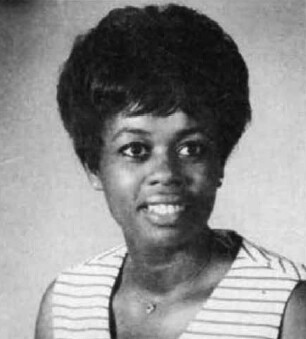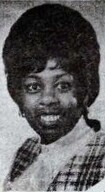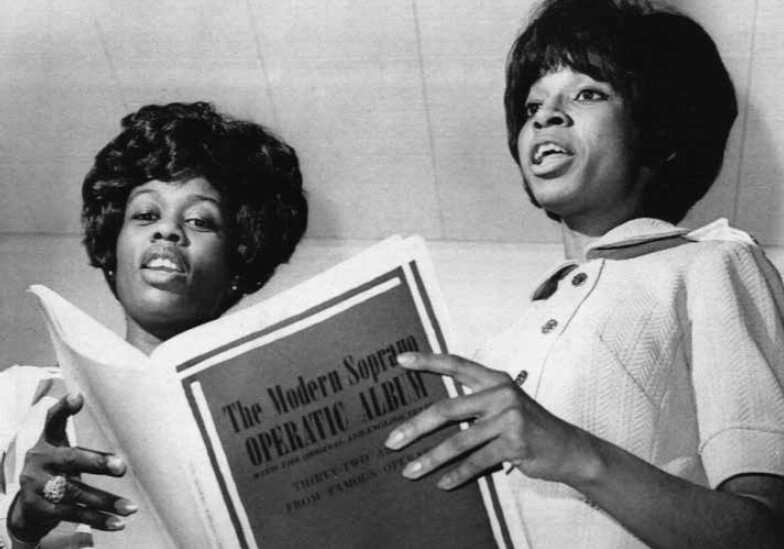Editor’s note: Wynetta Martin Clark and Marilyn Yuille were the first Black members of the Mormon Tabernacle Choir. News reports in 1970 often named Wynetta as the first singer in the Choir, though Marilyn joined at about the same time.
The Associated Press reported on the two in February 1970: “One, Mrs. Wynetta Martin, sang with the choir for the first time Jan. 22 at funeral services for the church’s 96-year-old president, David O. McKay. The second, Marilyn Yuille, auditioned for choir director Richard P. Condie in December and sang at her first performance two days later.”
On the Choir’s historical member roster, Marilyn is listed as singing with the Choir from 1969 to 1991 in non-consecutive years of service.
This article focuses on the story of Wynetta Clark.
A Church Tourist
Even as a child, Wynetta Willis Martin Clark felt like something was missing from her life—something as important as the very air she breathed. That something was a God whom she loved and trusted, a God who loved His children and was intimately aware of their hopes and feelings. Although Wynetta’s parents read from the Bible and attended church, the God that Wynetta learned about was frightening and cruel. At a young age, she determined that if this portrayal of God reflected His true nature, she couldn’t possibly love Him.1 Wynetta didn’t find peace in religion, but she did find that music helped her express everything in her heart and mind. Lyrics and melodies became a way for her to offer prayer.2
Even in her twenties, Wynetta struggled to connect with any specific religion. She described herself as a “tourist” because she visited one church after another, never staying at one for long.3 She tried to discover truth in these churches, but she still felt emptiness and believed the thing that was missing from her life would remain missing forever. But one night, Wynetta had a profound experience that nurtured her faith in a loving God. As she was lying in her bed, a terrible darkness overcame her. Her mouth felt dry, her head and stomach ached with pain, and a roaring filled her ears. An indescribable power caused her to feel helpless and horrified, and in her desperation, Wynetta uttered the most heartfelt prayer of her life: “Dear God. … Please, please help me now in my most desperate hour of need.” All of a sudden, a feeling of peace permeated Wynetta’s soul. She thought she felt a soothing touch on her brow, and she heard a voice speak gently: “Be still, and know that I am God.” Feeling awestruck and grateful, Wynetta finally found the God she had hoped for ever since she was a little girl. She knew that He was real and that He was kind. The only thing left to do was to find a religion that shared her testimony of Him.4
A Marvelous Voice

Wynetta stumbled upon such a religion in the unlikeliest of ways. Following a minor surgery on her leg, Wynetta had to recover in a post-op unit. At first, she felt nervous; she worried the patient who shared her room would object to her skin color. Wynetta’s roommate was named Barbara Weston. Not only did Barbara appear to be without racial prejudice, but she was also funny, bubbly, friendly, and talkative. Wynetta felt there was something unique about Barbara. Her new friend emanated a light that was warm, loving, and comforting. Barbara was a member of The Church of Jesus Christ of Latter-day Saints and spoke briefly about her beliefs. Intrigued, Wynetta asked Barbara to tell her more about her church, and for the next five days, they talked about this religion endlessly. They even avoided taking their sleeping pills so they could continue their discussions late into the night. Wynetta felt truly converted to the gospel when she read the account of Joseph Smith. As she read about his experience with the adversary in the Sacred Grove, she immediately thought of her own harrowing experience with the suffocating darkness. Two months after leaving the hospital, Wynetta was baptized [in 1966] and learned more about the God she had been searching for since her childhood.5
When Wynetta became a member of the Church, she aspired to join the Tabernacle Choir. Music was such an important part of her life, and she already had experience with live performances. When she was a teenager, she sang in the Willis & Johnson Quartette and performed dozens of times in the Los Angeles area.6 Wynetta decided to take the plunge, and she prepared to audition for the Tabernacle Choir. She obtained recommendations from both her bishop and stake president, but she had difficulty scheduling an audition with Brother Richard Condie, the conductor of the choir. Months passed before Wynetta was able to audition for the choir, but when the time finally came, she was terribly nervous. During the audition, Brother Condie smiled at her warmly and genuinely, which helped her relax. After forty-five minutes of vocal exercises, Brother Condie said: “Well, you made it. … I hope you thank God very often for your marvelous voice.” Wynetta was stunned. Her hands trembled as Brother Condie shook her hand, and the realization sank in: she was a member of the Tabernacle Choir.7
▶ You may also like: I’m a Pioneer: The perseverance of the first Black sister missionary called to serve
Embracing the Future with Faith
When Wynetta was a child, she frequently dreamed of being a missionary, of serving and lifting others’ burdens.8 Little did she know that she would fulfill this dream [in 1970] by singing in one of the world’s largest and most famous choirs. Wynetta and another young woman named Marilyn Yuille Norris were the first Black members of the Tabernacle Choir. The choir toured throughout the country, and Wynetta was awestruck by the opportunity to sing for the president of the United States in Washington, DC. She toured the White House, visited many historical sites, and even got to see the president turn on the lights of the Christmas tree in Washington Square Park. Wynetta said it was “[her] dream come true.”9
Wynetta was invited to participate in many singing and speaking engagements. She shared her story in hundreds of sacrament meetings, firesides, and seminary classes with the goal of bringing people to Christ and eradicating prejudices in the Church. She shared how the gospel had guided her to the missing piece of her life that she had yearned for as a child. It gave her a newfound purpose, which helped her discover her self-worth, and it prompted her to have more compassion.10 The gospel helped her realize a dream, in which she sang alongside 359 other members of the Tabernacle Choir. She wrote, “As I sing, I sing with all parts of myself to show the great gladness I feel for my life.”11

Editor’s Note: In 1970, the same year Wynetta joined the Tabernacle Choir, she was also hired by Brigham Young University to train nurses, making her the first Black faculty member at the university. While at BYU she also served as a research consultant on Black culture. She passed away in Hawaii in 2000.
She Did: Ordinary Women, Extraordinary Faith
Many of these women’s stories are not widely known, but they offer examples of faithfulness that can inspire us to be active participants with the Lord in directing our future.
Notes
- Wynetta Willis Martin, Black Mormon Tells Her Story: “The Truth Sang Louder Than My Position” (Salt Lake City: Hawkes Publications, 1972), 18–19.
- Martin, Black Mormon, 16.
- Martin, Black Mormon, 29.
- Martin, Black Mormon, 38–40.
- Martin, Black Mormon, 49–55.
- Martin, Black Mormon, 25.
- Martin, Black Mormon, 59–61.
- Martin, Black Mormon, 23.
- Martin, Black Mormon, 63.
- Martin, Black Mormon, 72.
- Martin, Black Mormon, 73.


